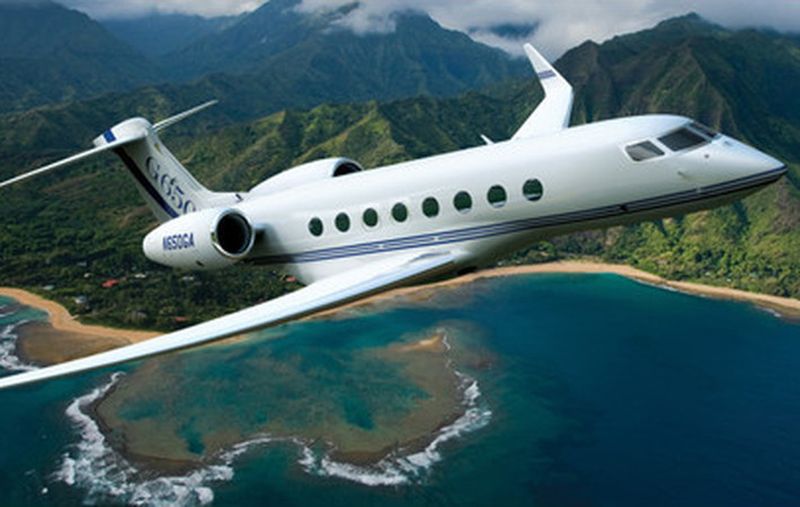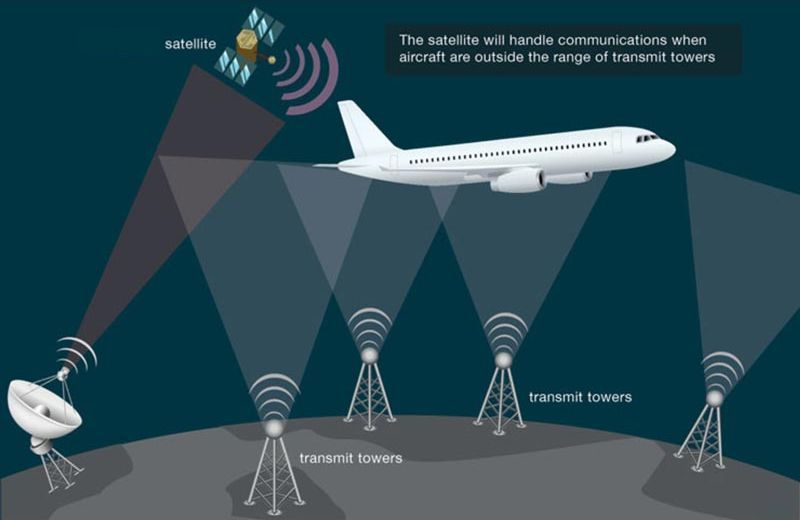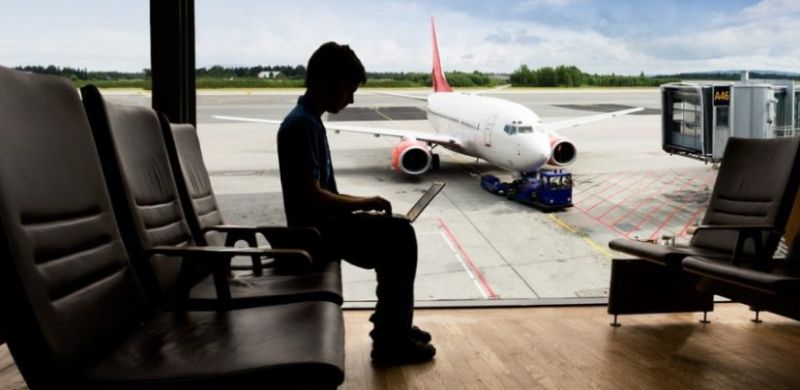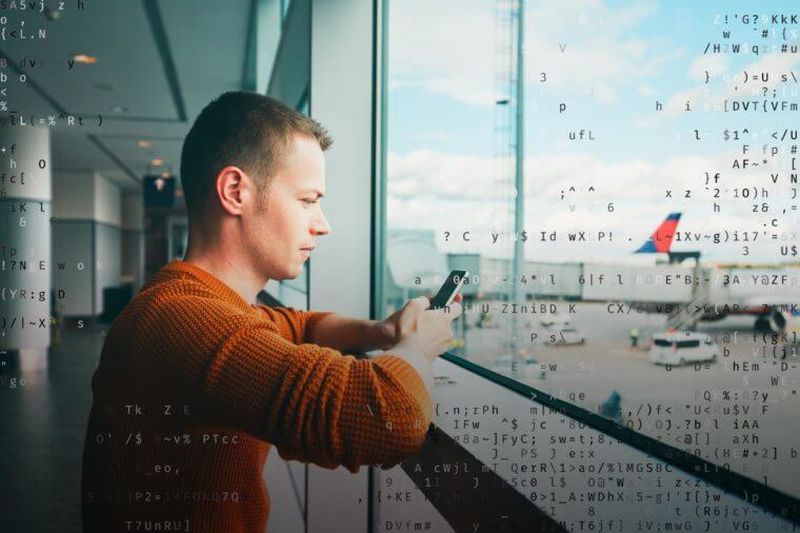
Delta Airlines, Sprint, and Gogo Inflight Internet are banding together to bring high-speed broadband internet to the skies. Ever since Grant Cardone appealed to the FAA to remove restrictions on in-flight cellular phone usage, and won, internet on airplanes has been quickly moving forward.
Today, you are no longer asked to turn off your devices on most airlines, so besides a potential lack of reception and slower internet speeds, you can use your phone and devices as you always would. With this new move by Delta, Sprint, and Gogo, slow internet on airplanes may also be a thing of the past.
The revolution of 5G internet is upon us, and with insane speeds of 1.4 Gbps (1,400 Mbps, as compared to 4G internet speeds of only 71 Mbps), this could mean the end of slow internet while traveling. This new change will not just speed up internet in-flight, but also may increase speeds in airports and while boarding.

Nothing will really change logistically. The actual airplanes will not be equipped with any special equipment or special hardware; they will continue to use satellites to transmit the data. This is likely why the cell phone company Airtel and the satellite company OneWeb have also joined in on the Seamless Air Alliance, which will surely make the transition to a seamless internet aviation experience much smoother.
The Seamless Air Alliance wants to completely transform the experience with getting connected to the internet while traveling. Currently, travelers have to navigate a mind-numbing and frustrating set of road blocks to try to get connected to the internet at airports, and it can be challenging to get a reliable connection while in the air, as well as very expensive. Many users in airports give up and use their cell phone internet, abandoning the local airport wifi; and many accept that they probably won’t have a good (or any) connection until they land.
Now, all this could change. The Wall Street Journal stated that the Alliance wants to eliminate the process of road blocks, terms and conditions, and entering credit card info entirely from the process of getting connected at airports and in-flight.

It is possible that users may still have to pay or that perhaps and upgraded internet speed may be included in the flight package, but this is merely speculation. We do know that many airlines such as Delta are beginning to offer free WiFi as of October 1, 2017; although only for various apps like Facebook Messenger, iMessage, and WhatsApp. There are also restrictions on this data and it does not include pictures or data-heavy messages. With 5G internet, however, it is unlikely that such restrictions would be warranted, as 5G data is so fast that the increased data usage is negligible.
The Alliance did state that it will be “more affordable for everyone” by implementing uniform standards for connectivity across commercial airlines and airports, although this could be referring to the expense of the airports and airlines, not the expense of the consumers. Currently, a lack of universal internet standards has driven up prices through competition; and a universal system of WiFi guidelines could help to eliminate this competition and drive prices back down.
Potential downsides of such an alliance is that it forms a monopoly and puts more user data directly under the control of major corporate conglomerates. While a monopoly can certainly be instrumental in driving down costs initially, historically, monopolies cause prices to rise dramatically in the long run. This is why the United States has antitrust laws such as the Sherman Anti-Trust Act that aim to prevent corporate monopolies. While in the beginning it may offer promises like better connectivity and wider availability of services, the downsides of a monopoly can be far more severe than the original problems.

Another potential downside is that if the Alliance is formed and it does universalize standards, it could centralize control of user data, putting users at risk of large corporations collecting user data and using it for unwanted purposes, or selling it to foreign governments. This is a danger that even with today’s standards is causing many people to be reluctant to use public networks, or opt to use a VPN like TorGuard in order to protect their privacy when browsing public networks like at airports.
Are these fears unwarranted? Only time can truly tell. While many users may fear their data being accessed and controlled, others may see this Seamless Air Alliance as a much-needed entry into our increasingly technologically-dependent world. This includes traveling businessmen who will be able to continue their work during long flights, regular users who want to stay in touch with family members, and even passengers on a budget who simply can’t afford to connect to in-flight WiFi, and who also don’t see the point when the currently expensive in-flight WiFi is slow and unreliable anyway.
The Seamless Air Alliance is currently in its infancy stages, and has no date for its release or even if it will actually happen. Surely, there is a huge amount of red tape and regulatory hurdles to overcome before it can be implemented. This means that it will likely be years before it moves forward and we see a revolution in aviation connectivity. Meanwhile, both foreign airlines like United Arab Emirates, and domestic airlines like the aforementioned Delta, and JetBlue who is the only airline to offer free Wifi to all passengers, are increasing in-flight internet speeds, expanding WiFi availability, and lowering costs. So even if the Seamless Air Alliance doesn’t happen or takes a long time to get here, the future still looks very promising to internet technophiles looking to get connected while traveling.




Yeah 2020 to quote IEEE.
Will they really get gigabit internet on flights? If so it would really help business travelers
I travel a lot so this would be really helpful if we can get fast internet on airplanes
Airport internet sucks and is hard to use. That would be great if they can fix the problem.
It’s nice that JetBlue gives free internet, I didn’t know that. I hope all the airlines do it!
What will happen if these corporations get control of all our data? Will we be safe?
I never pay for internet on flights, so it would be great if we could get free internet, especially high-speed internet. It would make flying a lot more convenient, especially considering how much we paid for the plane ticket.